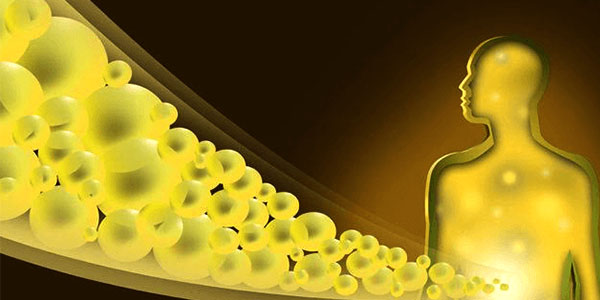Once dubbed the yellow peril, jaundice is a common condition of the liver that causes yellowing of the skin and eyes.
[the_ad id=”6214″]It is not a disease in itself, but is the result of an underlying condition. This condition occurs in infants as well as adults. Jaundice affects the liver, pancreas, gallbladder and the red blood cells. A malfunction of the liver leaves it unable to eliminate the bilirubin from the bloodstream. The excessive buildup of bilirubin in the body is what causes jaundice.
A patient suffering from jaundice will notice symptoms such as a yellowish tinge in the whites of the eyes as well as a yellow-tinted-skin color. Darker urine, vomiting, stomach pain, light colored stools, weight loss and fatigue are other possible symptoms of jaundice. The causes of this condition could be liver infection, cirrhosis, gallstones, hepatitis, alcohol abuse and liver or pancreatic cancer.
The treatment of jaundice completely depends on the root cause of the condition. A mild case of jaundice will resolve in itself quickly, without damaging the liver, whereas a severe condition may be caused by a serious illness that must be treated first. Some patients need to be hospitalized, while some may only require outpatient treatment. The underlying conditions of jaundice can be treated, with the help of drugs, antibiotics, surgery, liver transplant or chemotherapy. There are ways to avoid developing jaundice through preventive methods and is also possible to manage the condition in an efficient manner.
Here are some tips you can follow to keep jaundice in check:
- Vaccination
One way to guard against this condition in the first place is to get yourself vaccinated. A severe condition like Hepatitis B or Hepatitis A could lead to liver damage or liver failure. Jaundice is one of the symptoms of both these conditions. Thus, in order to prevent the development of these conditions, a vaccine against Hepatitis A and B, is essential.
- Healthy weight loss
Obesity and high cholesterol levels have been linked to conditions of the liver and jaundice. Thus maintaining healthy body weight is imperative to both, treating and preventing jaundice. An excessive consumption of fatty food increases your blood cholesterol levels, which in turn can cause you to develop gallstones and jaundice. Therefore, healthy weight loss may be essential in the fight against obesity and liver disorders. It is possible to lose weight in a healthy manner with moderate levels of exercise and a healthy diet. This will help you manage the condition of liver disease and alleviate the symptoms of jaundice.
- Avoid consumption of alcohol

An excessive consumption of alcohol is one of the main causes of liver failure and liver cirrhosis. Jaundice is a symptom of both these conditions. The best way to treat and prevent, jaundice as well as liver failure, is to limit consumption of alcohol.
- Managing jaundice in infants
An infant developing jaundice is a common occurrence. In most cases, the condition is resolved within a week or two without any treatment. However, if the condition persists, frequent feeding and exposure to sunlight are two ways to manage it, at home. Adequate amounts of hydration, through frequent feeding, can flush away the excess buildup of bilirubin in the infant’s body. Hence, feeding your baby as frequently as possible will help in the management of jaundice.
- Drink plenty of water
Drinking plenty of water and fluids is not only helpful in managing jaundice, but also in its prevention. The excess of bilirubin in the tissue and blood can be eliminated by drinking sufficient quantities of water. You can keep jaundice in check, by drinking around 6 to 8 glasses of water daily, which is again the recommended amount.
- Exposure to sunlight
Those who are affected by jaundice should receive direct exposure to sunlight, at regular intervals every day. This is because exposure to sunlight helps break down the excessive bilirubin content. Taking a 15-minute walk, three times in a day, for a few weeks, might work wonders. Exposure to sunlight is important for the prevention and treatment of jaundice, for infants as well as adults.
- Phototherapy
Phototherapy is a method used to treat infants who suffer from jaundice. This therapy can be administered, both at the hospital and home. A special sun lamp exposes the baby to a certain kind of light, which breaks down the excess bilirubin present in the blood.
- Home remedies
Numerous home remedies are simple yet effective in the treatment of jaundice. Home remedies such as sugar cane juice, radish leaves and buttermilk are beneficial for the liver. If consumed regularly along with a healthy diet, these remedies also help to alleviate the symptoms of jaundice.
- Diet
One of the most important ways to manage jaundice is by maintaining a healthy diet. The doctor  might recommend eating lighter meals more frequently during the day, instead of three heavy meals. A diet that helps to counter and fight jaundice includes plenty of fluids or juices, fruits, green vegetables, lentils, yoghurt, rice, eggs, fish and oatmeal. Until the symptoms have subsided, it is advised to avoid spicy, sugary or oily foods or food that is high in cholesterol and caffeinated drinks.
might recommend eating lighter meals more frequently during the day, instead of three heavy meals. A diet that helps to counter and fight jaundice includes plenty of fluids or juices, fruits, green vegetables, lentils, yoghurt, rice, eggs, fish and oatmeal. Until the symptoms have subsided, it is advised to avoid spicy, sugary or oily foods or food that is high in cholesterol and caffeinated drinks.
- Exercise
Patients who suffer from liver disorders experience symptoms of exhaustion or fatigue. Hence, they should not indulge in any strenuous exercise or activity. However, milder forms of exercise such as walking, yoga, cycling and Pilates, are necessary in order to maintain a healthy body weight. You should only exercise according to the severity of your condition; since in some cases, the doctor may recommend complete bed rest. In some other cases, it is possible to exercise, under the guidance of a registered medical health practitioner.
Jaundice can become serious if neglected in the initial stages of disease development. If you think your loved one is suffering from jaundice, get in touch with a doctor today.

